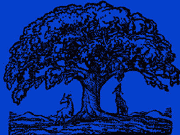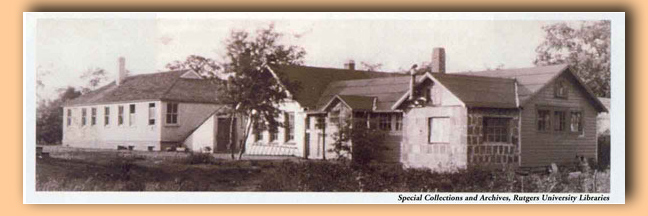 |
Inside
|
|
|
|
|
|
|
|
|
|
|
|
|
|
|
|
|
|
|
|
|
|
|
above is not operational. The author has not yet completed that page.
![]()
Links to Related Sites:
The Pitzer College Anarchy Archives
The Francisco Ferrer Collection - Mandeville Special Collections Library at the University of California, San Diego
The Stelton Modern School Archive at Rutger's University
Modern School Texts from:
![]()
Other
The University at Albany History Department
 |
 |
|
Author's Statement and Acknowledgements The Stelton Modern School
documentary and web site represents almost
a year's worth of research and development.
Starting in March of 2001, I began by talking
with former Stelton alum Jon Thoreau Scott,
discussing the story of the school, its development
and pedagogical background. This was followed
by several trips to New Brunswick, NJ to interview
other former students of the school about their
experiences, memories, and feelings about the
school. Fernanda Perrone, the archivist in
charge of the Modern
School Collection at Rutgers University
was particularly helpful both for her knowledge
of the school's history and for helping me
find my way through the archives collection.
Also, her short paper An Anarchist Experiment
served as a nice background before embarking
on an interview schedule. The materials found
in the collection helped to shed further light
on the stories unfolding in interviews. Also
of great help in unraveling the school's beginnings
were works by Paul Averich, who has written
the definitive history of the school based
upon his research and interviews he conducted
in the late 1970s.
Weszt,
founder of the band of the same name, provided
repeated critiques of this site, and gave many
helpful hints and suggestions as to how to
get it to work as desired. I must also take the time,
of course, to thank John Froebel Parker for
the conversations about his great-grandfather,
who laid some of the intellectual groundwork
for Ferrer's methods. Additional remembrances came
from Maxine DeFelice writing in Spectacle,
Sam Freedman in New Jersey Monthly, and Rhya
Levine Seligman. Information of the life and
work of Francisco Ferrer came from Carolyn
P. Boyd and a small pamphlet: The Modern School
Movement: Historical and Personal Notes on
the Ferrer School in Spain published by The
Friends of the Ferrer Modern School, as well
as Paul Avrich. While a more traditional
paper format could have been used to develop
this avenue of research, I felt strongly that
the multi-media capabilities provided by the
world-wide-web afforded greater opportunities
for exploring and developing the subject. The
ability to easily incorporate both audio and
images, along with the textual and scholarly
material, and the creation of a "visual
theme" increases understanding, appeals
to a potentially greater audience, and allows
the user to approach the material in his or
her own way - a concept consistent with the
values of "free education" espoused
by the proponents of modern schools. Finally, it has been my
great pleasure to make this an ongoing project
that has included continued involvement in
the Friends of the Modern School annual reunion,
and to have some small involvement in the plans
for a historical park on the site of the school.
It is important to recall that there have been, at times, thriving intellectual communities based upon other ways of living, and to try and rescue the Anarchist from that stereotype: the "mad bomber," so prevalent in the public imagination. This is my small contribution to that effort. Aaron R. Wunderlich
-Avrich, Paul. The Modern School Movement. Princeton, NJ. Princeton University Pr. 1980. -__________. Anarchist Portraits. Princeton NJ. Princeton University Pr. 1988. -Boyd, Carolyn P. "The Anarchists and Education in Spain 1868-1909." The Journal of Modern History. Vol 48, Issue 4, On Demand Supplement. Dec. 1976, pg. 125-170. -DeFelice, Maxine with Pete Goodman. "The Ferrer Colony." Spectacle. Vol 4, No. 1. Summer 1991. Pg. 57-65. -Durant, Will and Ariel. A Dual Autobiography. New York, NY. Simon and Shuster. 1977. -Freedman, Samuel G. "A Requiem for Anarchy." New Jersey Monthly. Dec. 2000. Pg. 56-57, 104-105. -Joll, James. The Anarchists. London, England. Eyre and Spottiswoode. 1979. Second Edition. -Perez, Pura, et al. The Modern School Movement: Historical and Personal Notes on the Ferrer Schools in Spain. The Friends of the Modern School. 1990. -Perone, Fernanda. An Anarchist Experiment: The Modern School of Stelton, New Jersey. Unpublished paper written for the opening of the Modern School Archives at Rutgers University Library for the Twentieth Century Utopian Communities Archives Project, funded by the National Historical Publications and Records Commission. 1996. -Seligman, Rhya Levine. Remarks
given at the annual reunion of the Children
of the Modern School, September, 1996.
|